Charity can be habit-forming — at least that’s the hope of the Christian think tank Cardus. To try out the theory, Cardus has launched the Give 150 campaign, designed to create a life-long giving habit with the help of a dollar-matching incentive and a patriotic pitch as Canada celebrates its 150th birthday. “It is a pilot project that we’re advancing to try to encourage Canadians to build that habit of giving,” said Michael Van Pelt, Cardus’ president and CEO. “The theme of Give 150 is really a way of saying giving as a habit will make this country a better country. Both giving financially and volunteering are key components to making this country the great country that it is.” The pilot project, which will continue for the duration of 2017, has a goal of seeing at least 2,500 Canadians create online accounts with Give 150’s partner Vancouver-based Chimp, an online charitable giving assistant account. From a Chimp account, participants are able to direct donations to any of Canada’s registered 88,000 charities. According to Chimp’s founder and CEO John Bromley, the current approach to raising money for charities fails to create repeat benefactors. “Today Canadians only give if they are asked,” said Bromley. “While fundraising is a critically important part of the charitable sector, and always will be, it has failed to create sustainable and cost effective cultural charity. (So) I started Chimp to provide an accessible and practical solution for people who have something they want changed in the world and have something to give towards it.” A Chimp account costs nothing to create and maintain. In fact, for the time being, simply opening an account as part of Give 150 will generate donation dollars. “The minute you sign up you get a gift of $15 and the minute you make your own contribution to your own charitable account you get another match of $15,” said Van Pelt. “And then if you actually make a commitment to reoccurring gifts then you get another match. It is just a really cool idea.” An anonymous philanthropist has put up $150,000 to fund the matching gift pool. “It is a really interesting initiative on the part of this philanthropist who is basically saying I want to create mechanisms and encouraging ways for everyday Canadians to give and to give habitually,” said Van Pelt. “It is not an easy challenge.” Since launching in 2013 Chimp has facilitated more than $200 million in donations, half of that money in the last year alone. Donations have ranged from a massive $4 million injection to more modest $15 donations. Among the most popular charitable sectors are religious organizations and orders, education, health care research, social services and poverty reduction, noted Van Pelt. He likened the creation of a Chimp account to establishing a personal charitable foundation. “You just jump onto your own personal Chimp account where you have money that you’ve already given, make donations to the organizations that you see fit and make your own charitable priorities,” said Van Pelt. “It is actually literally a charitable bank account for an everyday Canadian.” At the end of the year, Cardus will collect aggregate data from Chimp and then process that information. “Who knows what we will learn out of this,” said Van Pelt. “But someone needs to take up the challenge of this and what better time to do it than as we celebrate Canada 150.” Much of the challenge facing the charitable sectors, according to Statistics Canada, is the declining number of donors. Statistics Canada figures show that while the total dollars increased 14 per cent between 2004 and 2013, to $12.76 billion, the percentage of adult donors declined from 85 to 82 per cent. Van Pelt said Canadians should be concerned about this downward trend on donor numbers. “It will not be good for Canada if we keep seeing a decrease in giving,” he said. “Giving needs to be a muscle that will energize and maintain the vibrancy of the many charitable organizations across this country that are so important. If you live in a small town or live in a city, just look at the numerous charitable organizations.” Michael Fullan, executive director of Catholic Charities which oversees the allocation of donations to two dozen social service agencies in the Toronto archdiocese, said the trend poses a very serious threat to Canadian charities as the older generation becomes unable to contribute. “When you look at the older generations, those people are not going to be in a position to keep giving,” said Fullan. “They are going to pass on, retire or just have fewer resources. It is a real threat.” What’s needed is a change in the culture of charity among younger Canadians, he added. “I really applaud this (Give 150) kind of initiative,” he said. “It is a very good idea, whenever you have an opportunity, to cultivate a spirit of giving because you build seeds that will continue to grow in the future.” For further information visit www.faithincanada150.ca/give150.
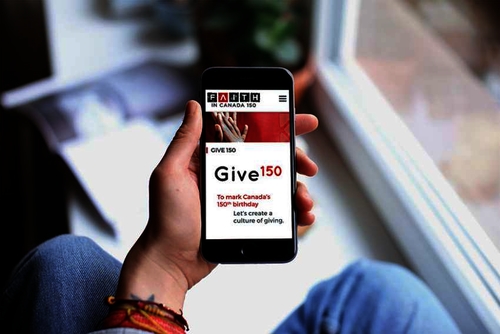
Cardus’ Give 150 campaign tries to make charity a habit
April 6, 2017

Canadians’ religious tolerance changing, but prejudice still exists toward Islam
To read the article, click here .
April 5, 2017
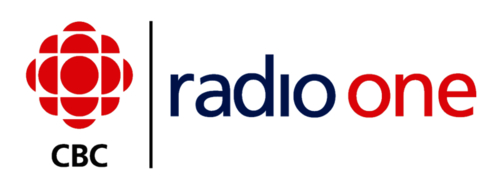
Canada’s religious landscape is changing…
To listen, click here .
April 4, 2017
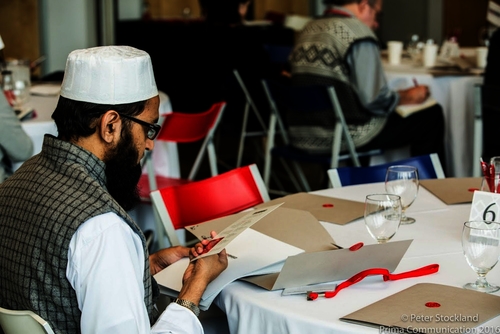
Keeping the faith alive
Faith in Canada 150 seeks to answer the question of how we live together in our differences and learn not just tolerance but love and neighbourliness, an aim that seems increasing vital today. To read the article, click here
April 3, 2017
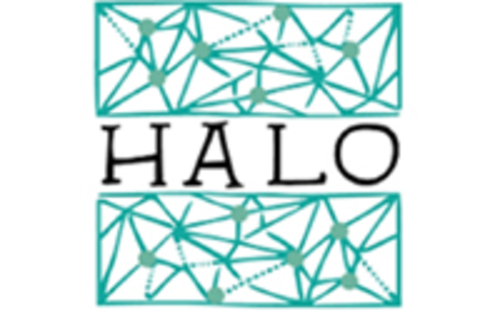
Milton Friesen in Engage!: The Halo Project
April 3, 2017

Faith in Canada 150 Launches New Charitable Giving Tool
FAITH IN CANADA 150 LAUNCHES NEW CHARITABLE GIVING TOOL In celebration of Canada’s 150th birthday, Give150 is connecting Canadians to charities – and making giving a habit, not a reflex. March 28, 2017 FOR IMMEDIATE RELEASE OTTAWA—Canada has experienced a steady decline in giving, hurting Canada’s 82,000 charities and the work they do. Give150 is an initiative that aims to raise more than $260,000 for Canadian charities while creating a new culture of generosity during our country’s 150th birthday. This initiative is a partnership between Faith in Canada 150 and Chimp, a foundation that believes everyone should have access to tools that can easily integrate giving into their everyday lives. Through Give150, individuals are able to create their own free foundation when they create a Chimp account. These individuals will receive the resources to give to any registered charity in Canada: on their own, with friends, with family, or with social networks. Give150 is an initiative meant to identify 2,500 Caring Canadians in Canada's 150th birthday year. Thanks to a significant patron, we have access to $150,000 of matching funds to benefit charities across Canada. Here’s where Canadians come in: Upon setting up an account, Caring Canadians receive a gift of $15 to give away Their first donation will be matched up to $15 If they set up a monthly recurring donation, Give150 will match the first two months up to $15 each That means Caring Canadians could have up to $60 to give to the charities they love, and get started on a lifelong journey of giving Charities that join the movement can set up a “Giving Group” with the hashtag #Give150, so that individuals can easily find them and donate Give150 is connecting individuals with charities, driven by the belief that giving should be a habit, not a reflex. -30- About Faith in Canada 150 Faith in Canada 150 is a program of Cardus that exists to celebrate the role of faith in our life together during Canada’s anniversary celebrations in 2017. For more than 450 years, faith has shaped the human landscape of Canada. It has shaped how we live our lives, how we see our neighbours, how we fulfill our social responsibilities, and how we imagine our life together. To learn more, visit: faithincanada150.ca/about About Cardus Cardus is a think tank dedicated to the renewal of North American social architecture. It conducts independent and original research, produces several periodicals, and regularly stages events with Senior Fellows and interested constituents across Canada and the U.S. To learn more, visit: www.cardus.ca and follow us on Twitter @cardusca. MEDIA INQUIRIES Daniel Proussalidis Cardus - Director of Communications 613.899.5174 dproussalidis@cardus.ca
March 28, 2017

Motherhood is a woman’s right to be valued, too
March 22, 2017
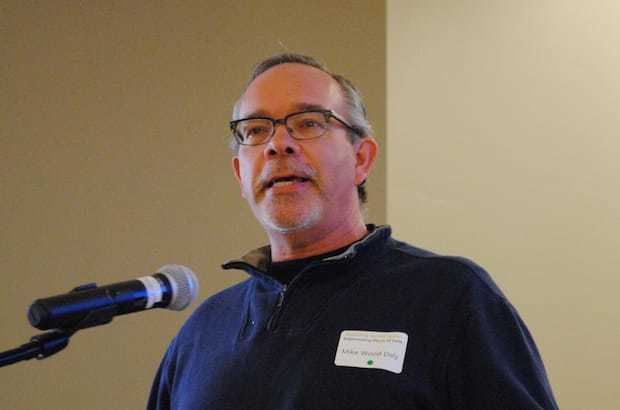
Churches mean millions to local communities: Halo study
March 21, 2017

Correcting a federal oversight
Last December, when federal Heritage Minister Melanie Joly announced a year of celebrations to mark Canada’s 150th anniversary in 2017, she said it would be a year to mark this country’s heritage, cultural diversity, citizenship, social contract, respect for pluralism, official languages and reconciliation with indigenous peoples. All good things, to be sure. But there was no mention of the substantial contribution organized religion has made to the history and creation of Canada. The folks at Cardus, a Christian think-tank based in Ontario, believe that is a serious oversight. But rather than spend time and energy trying to convince the government to include people of faith in the celebration, they decided to do it themselves. Faith in Canada 150 is the result. Through events, research, conferences, the sharing of stories and other activities, the organization is inviting people of faith in Canada to celebrate the role religion has played in the country’s history, and in life today. "When you start exploring the history of Canada, you come face-to-face with faith all the time," says Cardus president and CEO Michael Van Pelt. "Hospitals, universities, charities and other services — so much of this country is built on the religious traditions of Canadians." Van Pelt says he was "disappointed" that the government failed to include religion in its official anniversary celebrations, but he doesn’t think it was intentional. It’s more a matter of "forgetfulness" or "amnesia," he says of how policy-makers and others overlook the contribution of faith to Canada, combined with the "powerful secularization" occurring in the country today. But even a cursory look at Canadian history shows that the undercurrents of religion are stronger than many people think, he says. Cardus elaborates on this theme on its Faith in Canada 150 website. "For more than 450 years, faith has shaped the human landscape of Canada," it says. "It has shaped how we live our lives, how we see our neighbours, how we fulfil our social responsibilities, how we imagine our life together." "This is the story that Faith in Canada 150 will tell," it goes on to say. "It will nurture a public conversation that will remind us what our country is and why we live the way we do. It will allow us to say, ‘Here is Canada. Here is why faith matters.’" I think Cardus is on to something, and not just from a historical perspective. Canada is a thoroughly secular country, but religion still plays a vital role in many important ways. One way is economically — maybe not the first thing that comes to mind when you think about the ways religion impacts society, but perhaps an important way to catch the attention of political leaders. In the U.S., a recent study by Georgetown University found religion in that country is worth $1.2 trillion a year—more than the combined revenues of the top 10 technology companies in that country, including Apple, Amazon and Google. Researchers arrived at that figure by calculating the value of things such as religiously owned or supported health-care facilities, schools, daycares, charities and media, along with businesses with faith backgrounds such as kosher and halal food markets, and direct spending by religious organizations and congregations. At a more local level, a 2010 study of 12 congregations in Philadelphia came up with a figure of $62 million in annual economic value, based on direct spending, educational programs, community development, social capital and community care. In 2015-16, Cardus sought to replicate that study in Canada, researching the economic value of 10 congregations in Toronto. It came up with a figure of $45 million in local economic impact. And then there’s the important role people of faith play in supporting charities. According to Statistics Canada, people who are more religiously active donate more often and to more charities, make larger gifts and volunteer more time than those who aren’t as involved religiously. Of course, money isn’t the only way to measure the impact of religion in society, but these days, with so much emphasis on the economy, it might one way to clearly demonstrate the importance of faith in Canada — right now, and into the future. Maybe though Faith in Canada 150, that story — and many others — can be told. For more information visit www.faithincanada150.ca.
March 18, 2017
Media Contact
Daniel Proussalidis
Director of Communications
